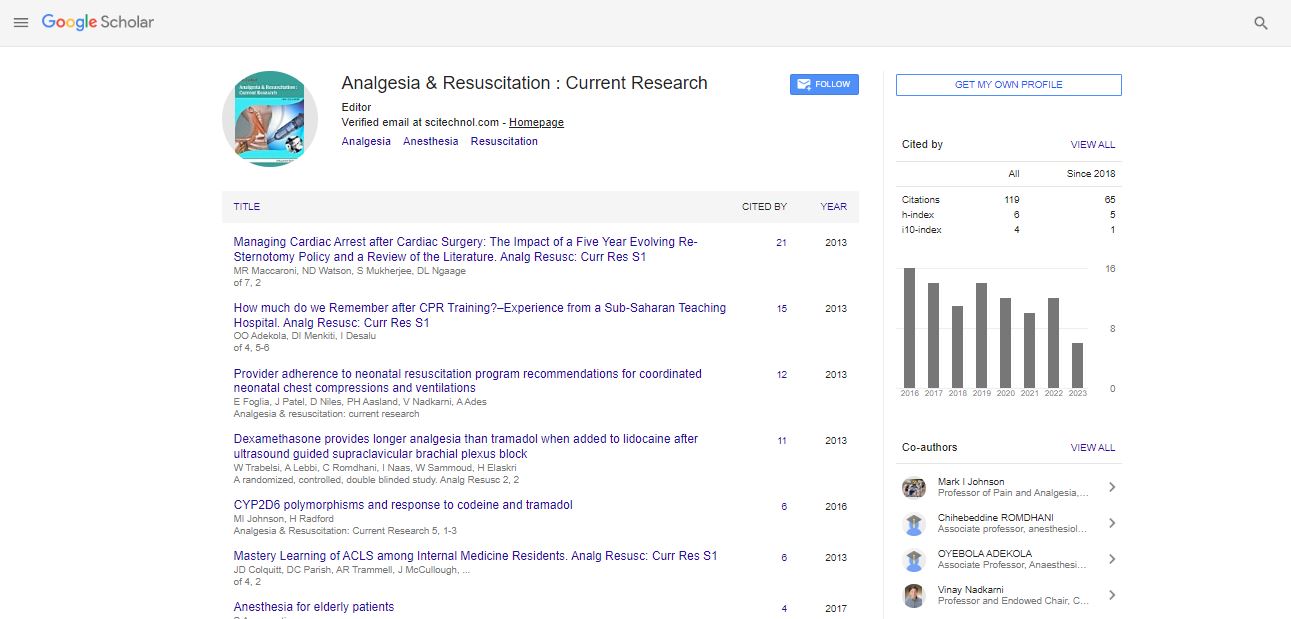Case Report, Analg Resusc Curr Res Vol: 7 Issue: 1
Diclofenac Rechallange Induced Fatal Toxic Epidermal Necrolysis
Irie Bi GS*, Pete Y, Koffi N, Ango P, Kamagate M, Nda-koffi C, Ogondon B, Kouadio S, Able E, Kouame KE and Yapo B
Anesthesia-Resuscitation Department of teaching hospital of Bouake, Bouake, Ivory Coast
*Corresponding Author : Irie bi GS
Anesthesia-Resuscitation Department of teaching hospital of Bouake, Bouake, Ivory Coast
Tel: 00 22507673862
E-mail: iriebi_gohiserge@yahoo.fr
Received: January 04, 2018 Accepted: January 11, 2018 Published: January 16, 2018
Citation: Irie Bi GS, Pete Y, Koffi N, Ango P, Kamagate M, et al. (2018) Diclofenac Rechallange Induced Fatal Toxic Epidermal Necrolysis. Analg Resusc: Curr Res 7:1. doi:10.4172/2324-903X.1000155
Abstract
Lyell’s syndrome or toxic epidermal necrolysis is an acute and severe cutaneous adverse drug reaction with a significant morbidity and mortality. It is a very rare condition but a vital emergency with a poor prognosis. The diagnosis is clinical and confirmed by a cutaneous biopsy showing a necrosis of the epidermis. It can be due to a many drugs including non steroidal anti-inflammatory drugs. We report a case of fatal Lyell’s syndrome after oral readministration of diclofenac in a patient with a history of diclofenac related Stevens-Johnson syndrome four years previously.
 Spanish
Spanish  Chinese
Chinese  Russian
Russian  German
German  French
French  Japanese
Japanese  Portuguese
Portuguese  Hindi
Hindi 
